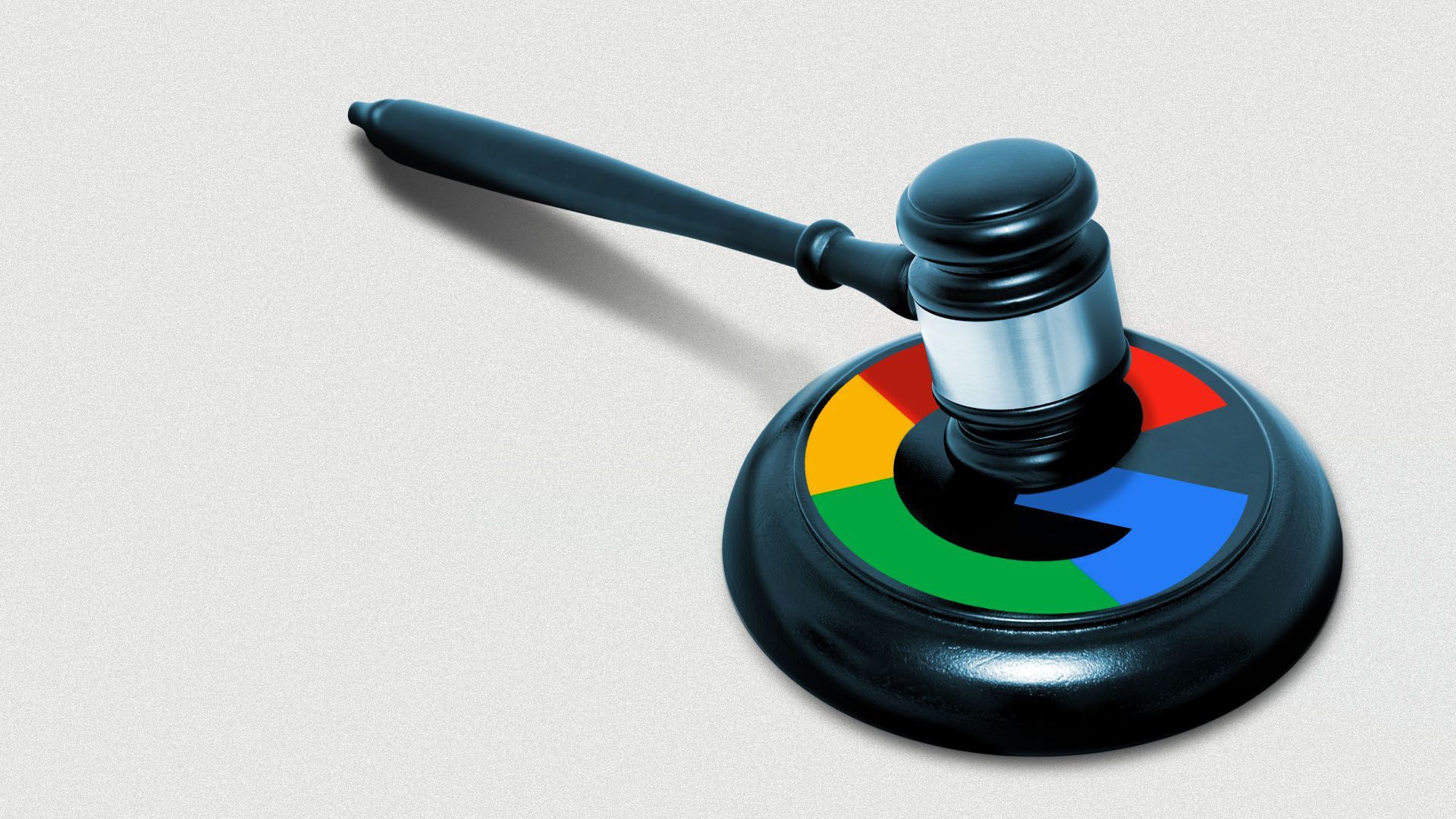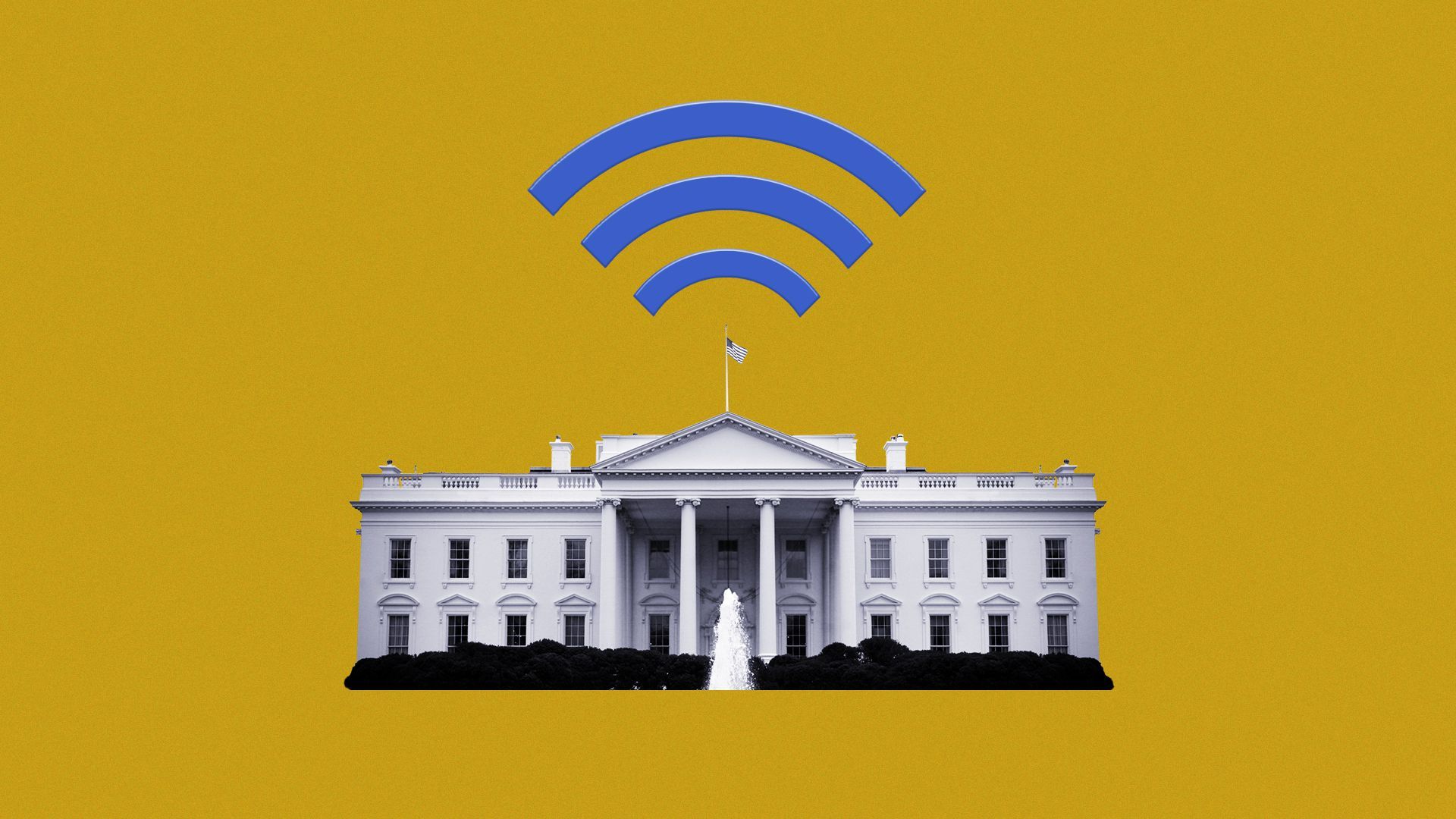| | | | | | | Presented By Computer & Communications Industry Association | | | | Axios Login | | By Ina Fried · Sep 09, 2022 | | Hi from Chicago, where I am joining several Axios colleagues for the annual conference of NLGJA: The Association of LGBTQ Journalists. 🤖 Situational awareness: Amazon says it's acquiring another robot company — this time, Belgium-based startup Cloostermans, which designs and makes robotic operational systems. Today's newsletter is 1,314 words, a 5-minute read. | | | | | | 1 big thing: TikTok unites tech's factions against it |  | | | Illustration: Aïda Amer/Axios | | | | TikTok has managed to get everyone in tech on the same page, wherever they stand on regulation, antitrust and all the other controversies raging in the industry. Driving the news: While TikTok had no official presence at the Code Conference, the Chinese-owned firm was the talk of the annual gathering of tech world notables this week — serving as the foil of choice for a parade of tech executives, pundits and even some government officials. Why it matters: Growing as other giants slow, the social app for short video has emerged as a target for Silicon Valley giants worried about losing users and also for Beltway insiders who fear the company's ties to Beijing will undermine national security. Be smart: It's not what TikTok is doing today that has people most concerned, but rather what it could do with millions of users, many of them young people, and a powerful algorithm that seems perfectly tuned to reach their hearts and minds. - The nightmare scenario imagines China using the site to actively spread misinformation, sow discord or otherwise seek to manipulate a world of users that TikTok has grown to know so well.
At Code, Google CEO Sundar Pichai cited TikTok as both a growing rival to Google-owned YouTube and proof that competition is alive and well. "The thing about being in tech, competition comes from nowhere," Pichai said. "None of us were talking about TikTok three years ago." What they're saying: "There's been two major themes so far" at Code, author and podcast host Scott Galloway told the conference crowd: "The first is Tik, the second is Tok." - Galloway, who took every chance to call out the dangers of TikTok, was the sharpest critic in calling for it to be banned, but others were happy to join in.
Snap CEO Evan Spiegel offered the most detailed take on TikTok's growth, pointing to vast sums that Chinese parent ByteDance spent acquiring creators and customers to transform a little-known app into a global phenomenon. - "No startup could afford to invest billions and billions and billions of dollars in user acquisition like that around the world," Spiegel said. "It wasn't an innovation-led strategy."
Sen. Amy Klobuchar (D-Minn.), whose antitrust bill specifically targets large tech companies and who has not been shy of questioning TikTok in the past, said her proposed antitrust bill would cover TikTok if the company grows large enough. Only Apple CEO Tim Cook demurred from bashing the company. "I am not a TikTok expert," he told the crowd. |     | | | | | | 2. Google, DOJ square off over search dominance |  | | | Illustration: Sarah Grillo/Axios | | | | Google pays "billions" to other companies to keep Google Search as the default option on phones, in browsers and elsewhere, maintaining an illegal dominance over the search market, the Justice Department said Thursday in court, Axios' Ashley Gold reports. Driving the news: Lawyers for Google along with the Justice Department spoke before District Judge Amit Mehta Thursday in a hearing where both sides laid out relevant facts in the DOJ's 2020 antitrust suit against the search giant. - The hearing was a tutorial of sorts for the purpose of educating the judge on different technology aspects of Google's business.
Why it matters: Antitrust cases are lengthy ordeals, and Thursday's hearing marked a flashpoint for both sides as they gear up for a likely trial next year, offering glimpses into the arguments they're likely to make. Flashback: The suit, a landmark confrontation that is being closely watched by the tech industry and regulators around the world, was filed at the end of the Trump administration in October 2020 and has continued under President Biden. What they're saying: The Justice Department, along with state attorneys general pursuing a parallel suit, say Google pursues default agreements because it knows switching to another search engine involves too much "friction" for a user and people end up sticking with Google. - The DOJ didn't specify just how much Google spends on these agreements, but attorney Kenneth Dintzer described it as in the "billions."
The other side: Google attorney John Schmidtlein argued that people are free to use any search engine they like on Android and Apple phones, for which Google is the default search engine, and switching isn't hard. Companies also choose to contract with Google because it helps their business, he said. - Google's default agreements have not foreclosed users' ability to get to other search engines like Microsoft's Bing, he said, and Google has plenty of competition.
What's next: A full trial is expected to start next year, but some participants expect a summary judgment addressing some of the DOJ's allegations to arrive before the end of this year. |     | | | | | | 3. White House lists tech accountability goals |  | | | Illustration: Rae Cook/Axios | | | | After a "listening session" that gathered experts and critics of tech platforms' power at the White House Thursday, the Biden administration released a list of six "Principles for Enhancing Competition and Tech Platform Accountability," Axios' Scott Rosenberg reports. Why it matters: With efforts to pass tougher rules governing tech competition and privacy largely stymied this year in Congress, the executive branch is where critics of tech power are pinning their hopes. The White House principles embrace bipartisan Congressional efforts to pass antitrust and privacy legislation. - They call for new rules to protect children's privacy and well-being online, transparency from platforms about their algorithms and content moderate policies, and an end to "discriminatory algorithmic decision-making."
- They also call for "fundamental reform" to Section 230, the law that protects online platforms from liability for what users post and lets platforms moderate content without being treated as a publisher.
Between the lines: The White House meeting gave seats at the table to scholars and companies that have taken issue with the power of tech's giant market leaders, but those companies themselves were not represented. The other side: Tech policy think tank ITIF issued a statement by Aurelien Portuese, director of ITIF's Schumpeter Project for Competition Policy, criticizing the principles as "doing more harm than good." - "The U.S. platform economy is a global success and does need wholesale change," the ITIF statement said.
|     | | | | | | A message from Computer & Communications Industry Association | | Americans oppose new regulations amid inflation worries | | |  | | | | In recent polls, 68% of Americans said inflation was the most pressing national issue, while only 3% saw antitrust tech regulation as a priority. Further, 70% of voters said they oppose Congress' proposed new antitrust regulation for tech companies. Learn more. | | | | | | 4. Online political ads are still a Wild West | | After Big Tech platforms cracked down on political ads in the 2020 election's wake, political advertisers have increasingly flocked to the new Wild West of programmatic ad companies, per a report exclusively shared with Axios' Ashley Gold. Why it matters: Programmatic ad companies, which automate the buying and selling of ads on various platforms, have minimal transparency tools and few specific content restrictions. What's happening: Published by the University of North Carolina's Center on Technology Policy, the report, supported in part by the Knight Foundation, looks at ad exchanges, supply-side platforms and demand-side platforms, rather than big ad networks like Taboola or publishers like Hulu. - Tech for Campaigns estimates that advertisers spent $2.3 billion on Facebook and Google ads and $1.5 billion on other digital ads in 2019-20.
- Consultants quoted in the report say ad money is shifting away from tech platforms as targeting rules get stricter.
What they're saying: "We're only two months from another election cycle, and there's still so much we don't know about the online political ads ecosystem," said report co-author J. Scott Babwah Brennen, head of online expression policy at the same center. "We found an ad-tech ecosystem that seems to be designed to be opaque and Byzantine." The intrigue: No programmatic ads companies reviewed by Perault and Babwah Brennen explicitly prohibit lies about election processes or outcomes, and few make their policies around misinformation in the context of political ads clear. |     | | | | | | 5. Take note | | On Tap ICYMI - Sources say that Twitter whistleblower Peiter "Mudge" Zatko signed a confidential settlement with the company in June that gave him $7 million for lost pay. (Wall Street Journal)
- Snap CEO Evan Spiegel says he plans to double down on the company's key bets: augmented reality and communication between friends. (Axios)
|     | | | | | | 6. After you Login |  | | | Photo: Ina Fried/Axios | | | | I made a new friend at Code. (There is a really cool aquarium in the lobby of the Beverly Hilton.) |     | | | | | | A message from Computer & Communications Industry Association | | Congress: Get your priorities in order | | |  | | | | In poll after poll, Americans are making it clear they want Congress to focus on the economy, not more tech regulation. With inflation high and a recession looming, why are some in Congress focused on breaking Americans' favorite digital services? Learn more. | | | | Thanks to Scott Rosenberg and Peter Allen Clark for editing and Bryan McBournie for copy editing this newsletter. |  | | Are you a fan of this email format? It's called Smart Brevity®. Over 300 orgs use it — in a tool called Axios HQ — to drive productivity with clearer workplace communications. | | | | | | Axios thanks our partners for supporting our newsletters. If you're interested in advertising, learn more here.
Sponsorship has no influence on editorial content. Axios, 3100 Clarendon Blvd, Arlington VA 22201 | | | You received this email because you signed up for newsletters from Axios.
Change your preferences or unsubscribe here. | | | Was this email forwarded to you?
Sign up now to get Axios in your inbox. | | | | Follow Axios on social media:    | | | | | |









No comments:
Post a Comment